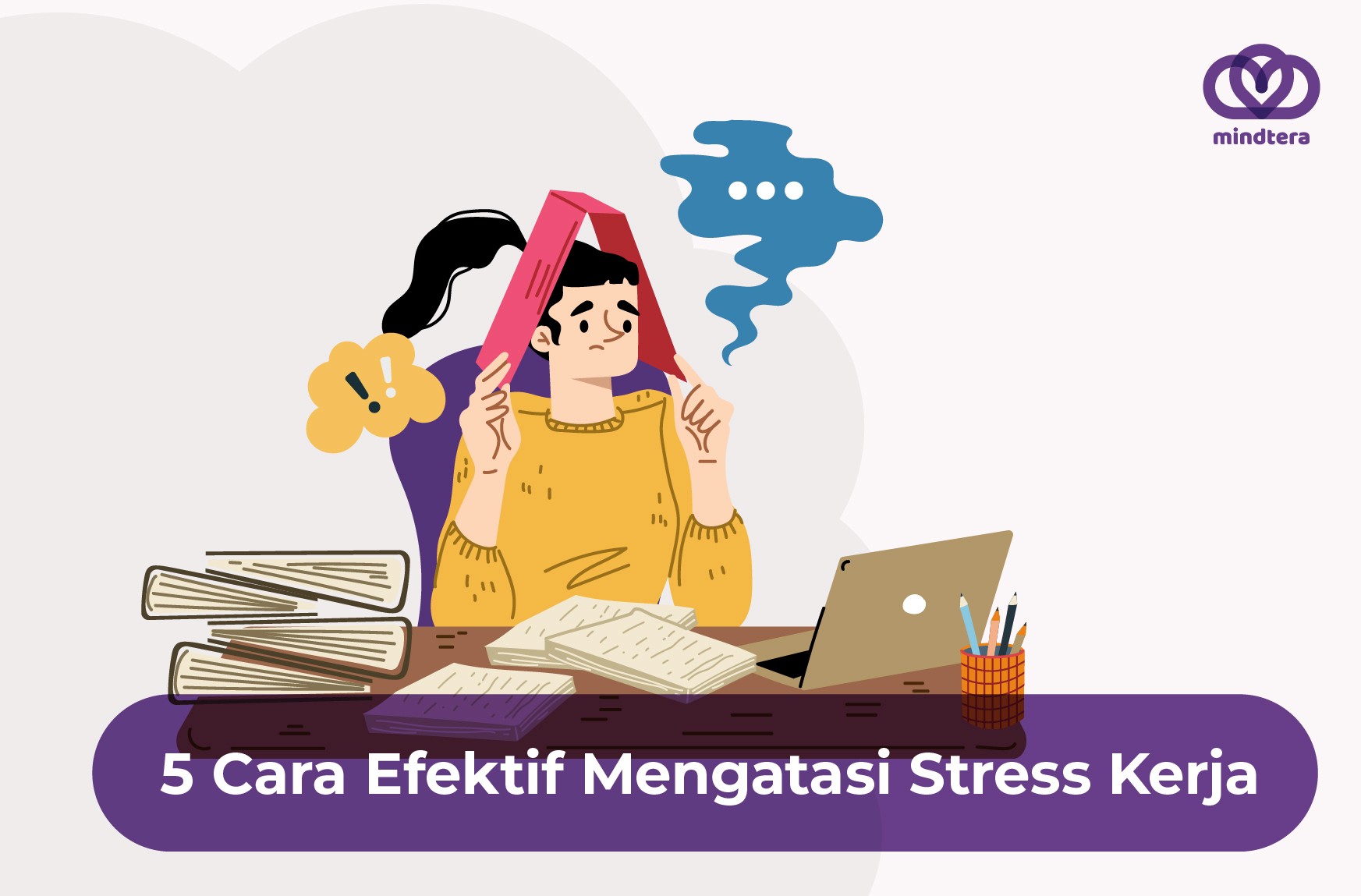5 Effective Ways to Overcome Stress at Work
Karir
April 5, 2023

As an employee who spends most of their time, energy, and effort at work, feeling stressed because of work has become a part of our lives. We are required to deal with deadlines, pressure, heavy workloads, or even an unfriendly work environment.
In small doses, work stress can be tolerated. However, if it persists for a longer period of time, work-related stress can affect our performance and personal health. According to a Mercer Marsh Benefit (MMB) survey, 2 out of 5 employees in Indonesia experience work-related stress. However, employees who feel supported by their company are 10% less likely to be stressed.
Based on a global survey that also involved more than 1,000 employees in Indonesia, MMB recommends that companies provide a comprehensive range of mental health support. The availability of such support is expected to expand prevention and treatment, improve emotional health, and reduce daily stress levels.
That's why adequate stress management in the workplace is highly necessary.
Workplace stress should not be considered normal
The current culture that views work-related stress as something normal is dangerous for employees' mental and physical health. Research also shows that extreme pressure in the workplace can hinder productivity and motivation.
When work stress strikes, employees find it difficult to concentrate, meet deadlines, and leverage their creativity.
According to The Workplace Health Report: 2022, which surveyed 2.201 employees, the top 10 causes of work-related stress are as follows:
Excessive workload
Lack of control
Lack of support
Senior staff
Peers
Inadequate training
Job security
Working from home
Commuting distance
Other factors (working conditions, work-life balance, etc.)
Therefore, it is time for companies to be proactive in providing adequate stress management tools that meet employees' needs and not make work-related stress a normal occurrence.

5 Effective Ways to Overcome Work Stress
1. Control stress within yourself
The constant demands and overload of information can cause us to feel stressed and reduce our ability to focus and solve problems.
There are many steps you can take to avoid or reduce stress, including fostering positive emotions, taking care of your physical brain, and becoming more organized.
In general:
Make sure you get enough sleep
Maintain a balanced diet and stay hydrated
Exercise every week and make time for hobbies, or enjoy nature
In terms of work:
Schedule regular meetings with people you value
Break big tasks into smaller ones
Maintain cleanliness in the workplace
Schedule "thinking time" during your busy day
Recognize when you do your best work. Plan your most important tasks for that time
Walk more, stand more, or listen to music, depending on what suits you best
2. Manage the energy within yourself
Heavy workloads, long work hours, and increased job responsibilities can make us feel emotional, stressed, and tired. Creating a series of routines and practices can improve your physical, emotional, mental, and spiritual energy.
- Physical energy
Identify times during the day when you feel tired or unable to concentrate. Step away from your desk, meet with coworkers, or do something interesting.
Take time to focus for 90 to 120 minutes at a time, and take regular breaks.
Eat light meals during the day to maintain energy.
- Emotional energy
Practice belly breathing to manage negative emotions, such as anger, anxiety, and impatience.
Express gratitude and appreciation for others while practicing self-compassion.
- Mental energy
Disable email and put away your phone to do tasks that require high concentration.
Schedule a specific time each day to answer emails.
At the end of the day, make a list of important or prioritized tasks for tomorrow.
- Spiritual energy
On the way home from work, or the last 20 minutes of working remotely, try to relax. Sit mindfully or listen to music before returning to your daily routine.
Identify your values. Reflect on whether you use and demonstrate them to those around you.
3. Identify the causes of work stress
Try keeping a journal for one or two weeks to identify which situations cause the most stress and how you respond to them. Record any thoughts, feelings, and information about the circumstances, including people and situations involved, physical setting, and how you react.
Keeping a record can help you discover patterns among the causes of stress and your reactions.
4. Develop healthy responses
Instead of trying to combat stress with something unhealthy, do something else that is healthier when you start to feel intense stress.
Exercise may be an option for you. Also, make time for hobbies and favorite activities, whether it's reading novels, going to concerts, or playing games with family. Make sure to set aside time for things that make you happy.
5. Communicate with your boss
Employee health certainly affects workplace productivity, so your boss should take the initiative to create a work environment that supports employee wellbeing. Start by having open communication with your boss.
The goal is not to make complaints but to generate an effective plan to manage the causes of work stress you have identified so that you can do your best at work. By doing so, your boss will provide stress management resources through an Employee Assistance platform, including available counseling or referrals to professionals if needed.
Mindtera is your best choice for managing employee productivity, performance, and well-being
As an HR or leader, you can provide adequate stress management resources for your employees. Mindtera provides various psychological assessments, group coaching, personal counselling, JEDA wellness content, and other wellness programs to assist you in managing employee productivity, performance, and wellbeing.
Some of the group coaching topics that have been conducted for over 1000 employees include
Stress Management
Work Life Integration
Productivity Wellness
Handling Toxic People
Meaningful Work
and many more.


